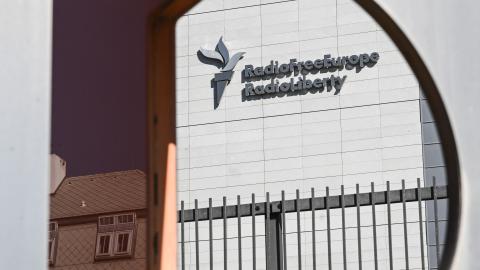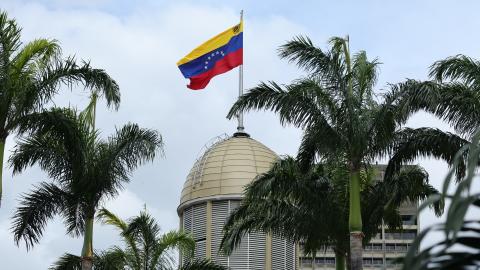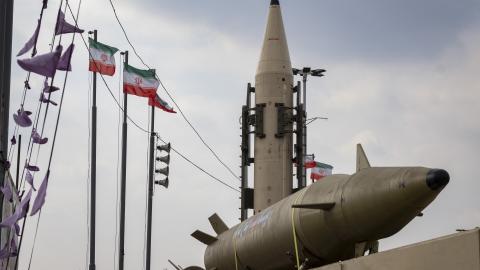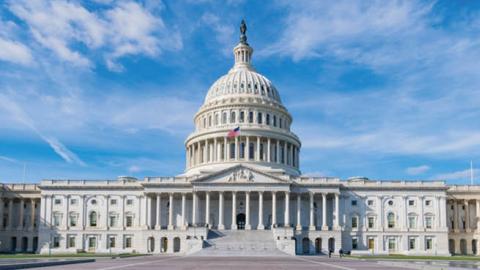While serving as Treasurer of Venezuela, Alejandro Andrade supplemented his official salary by demanding bribes in return for access to the country’s lucrative foreign currency exchanges. His $1 billion scheme was impressive even by the obscene standards of contemporary global kleptocracy, and funded a glamorous few years in which he splashed out on private jets, racehorses, and luxury real estate in Florida.
Andrade’s fortunes were spectacular but short-lived. After pleading guilty to U.S. bribery charges in late 2017, the man who began his career as Hugo Chávez’s bodyguard now faces the sobering prospect of a decade behind bars. His case should be a perfect example of how, time and again, it is the United States that steps forward to prosecute corrupt foreign officials, seize their ill-gotten gains, and deliver justice for the victims of global kleptocracy. But there was a twist.
Because Venezuela is a sovereign state rather than a private entity, Department of Justice lawyers argued that it could not be a victim under U.S. law, and the proceeds of Andrade’s corruption consequently became the legal property of the United States. This prompted an unnamed Venezuelan party to take the extraordinary step of suing the U.S. government to try and force the return of the funds to their country of origin.
We know nothing of the client or their motivations. But what the case undoubtedly reflects is a broader and growing concern among victims of kleptocracy over the fate of funds that were stolen from them and then seized by the United States. Where does that money go? When will they get it back, if at all?
Because kleptocrats typically launder money through shell companies and shadowy banks located in multiple jurisdictions, the process of returning stolen assets is legally complicated, politically fraught, and prone to delay. Indeed there are only a handful of successful examples. And the unacceptable risk that repatriated funds will simply be pocketed again in countries still struggling with endemic corruption means that, in the vast majority of cases, the best course of action is for the United States to hold them in trust until basic governance standards are met.
But meanwhile, the optics of a powerful, wealthy country seizing money that was originally stolen from the world’s poorest and most vulnerable people are problematic to say the least. As U.S. law enforcement ramps up its campaign against corrupt foreign officials and its coffers continue to swell, it is easy to see how lack of transparency in the stolen asset repatriation process could become a source of rising resentment towards America.
Worse, it comes as Xi Jinping has sought to present himself as a new kind of anti-corruption champion and position China as the predominant source of global aid and development funding. As the Chinese Communist Party seeks to extend its influence throughout the developing world and portray the United States as a declining power that is ceding global leadership, there is an urgent need to better articulate America’s commitment to supporting democratic transitions and economic development with a genuine fight against transnational corruption.
This is an enormous task, but one of the first steps is surprisingly simple. The bipartisan Justice for Victims of Kleptocracy Act , sponsored by Representatives Tom Malinowski and John Curtis, would require the Department of Justice to collate information about how much money it has seized from corrupt foreign officials and publish the figures by country in a list on its website.
Unlike some of the other counter-kleptocracy measures currently working their way through Congress, this would not require political wrangling over new powers or resources for law enforcement. And given that most of this information is already published piecemeal by the Department of Justice and other agencies in press releases, pulling it together for a simple web page will be straightforward.
Meanwhile, this modest administrative measure could have surprising geopolitical implications. U.S. diplomats and democratic opposition movements could use it to pile pressure on the corrupt political elites of countries near the top of the list. It would provide a useful resource for American businesses weighing the risks of investing in those jurisdictions. And it’s the kind of innovation that can help re-establish U.S. leadership on global anti-corruption efforts as an alternative to the sham campaigns pursued by Xi and other authoritarians.
Most importantly, it would send a clear message to the victims of corruption that America is working to return stolen funds to their rightful owners, will continue to hunt down crooked officials, and always stands for democracy and the rule of law in the face of rising authoritarian kleptocracy.















